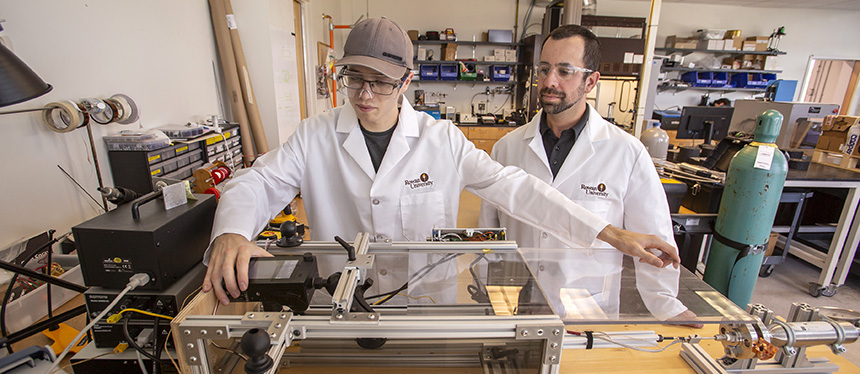Rowan REACTS Research Projects
Rowan REACTS Research Projects
Rowan REACTS Research Projects
The Rowan University Chemical Engineering department is at the forefront of groundbreaking research in chemical sustainability that addresses multiple Sustainable Development Goals (SDGs) set forth by the UN. The following eight major research areas highlight our commitment to driving significant technological and educational advances in critical areas of chemical sustainability and diversity. Our PhD fellows will have the opportunity to pursue their research interests and goals from these broad range of projects.
Driving Efficiency and Sustainability in Pharmaceutical Manufacturing
Pharmaceutical manufacturing faces high Environmental Factors (E-Factors) and Process Mass Intensity (PMI) due to inefficient batch processes. This project aims to enhance continuous manufacturing and improve solvent reuse while advancing crystallization mechanisms.
Data-Driven Approaches for Improving Sustainability
Access to large datasets, advanced AI tools, and systems engineering principles will enable enhanced predictive models for timely decision-making improving sustainability. This project will focus on applications in the healthcare and environmental sectors.Engineering Solutions for Clean Water
Gel membranes show promise for purifying water by removing contaminants. This project explores novel thermo-responsive polymer gels to create photocatalytic membranes, targeting pollutants like PFAS and E. coli.
Green Bioprinting for Regenerative Medicine
Exosomes from plant cells show potential for enhancing tissue repair and offer an alternative to human and animal cell-derived exosomes. This project focuses on bioprinting plant cells in temperature-sensitive hydrogels to stimulate production of therapeutic exosomes, positioning this process as a promising tool for sustainable regenerative medicine.
Converting Waste into Sustainable Aviation Fuel
In support of the U.S. decarbonization goals, this project aims to develop a catalytic process to convert coffee waste into renewable aviation fuel. The project focuses on creating catalytic pathways and nanofiltration membranes which enhance cost-efficiency.
Sustainable Materials for Semiconductor Manufacturing
Rowan’s Advanced Materials and Manufacturing Institute (AMMI) is developing eco-friendly upcycling strategies for semiconductor manufacturing. This project aims to upcycle glass and semiconductor waste, and together with biobased polymers to develop a closed-loop recycling model.
Clean Hydrogen for a Sustainable Energy Economy
As part of the U.S. Department of Energy funded Mid-Atlantic Clean Hydrogen Hub (MACH2), this project aims to accelerate the adoption of clean hydrogen through developing safer and more effective strategies in hydrogen processing, transport, and storage.
Supporting Underrepresented Minorities in Engineering
This project aims to improve PhD completion rates among underrepresented doctoral students by developing a system dynamics model to address barriers in degree progress. Insights will inform the creation of a Doctoral Institute to drive student success.
